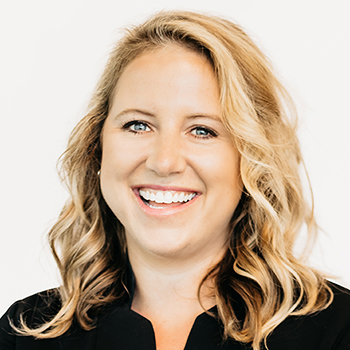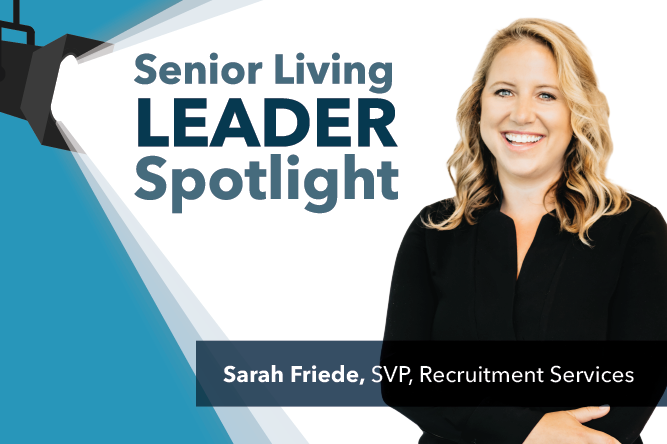
The Challenges
The staffing challenges in skilled nursing care continue to plague the industry, impacting resident care and overall operating margins. The “Great Resignation,” a term to describe the mass exodus of employees leaving their jobs since the beginning of the pandemic, continues with one in five workers planning to quit in 2022, according to a survey conducted by Price Waterhouse Cooper’s (PwC) Global Workforce.
The People Who Can Help
Who are these people leaving in droves? According to an article published by McKinsey & Company (MC), there are five groups of workers, described as “personas,” that have left during this exodus. They have different wants and needs from their employers. To attract these individuals, leaders must understand their motivations and adapt accordingly to combat the staffing challenges that have risen to exorbitant levels, even exceeding the pre-COVID levels.
Will They Help?
The first “persona” described by McKinsey & Company is the “Traditionalist.” These individuals want top pay and a good job title, which can be placed on their resume to climb the career ladder. They are between 45—65 years old and seek job security. They seldom quit a job without having another one secured. They care about a work-life balance but are willing to work ten or more hours daily to get the job done. Their mindset is one of coming to work to do a job; having friends at work is not their biggest concern. Many people in senior leadership in skilled nursing are traditionalists and seek similar employees to join their workforce; however, they do not exist in high numbers.
You then have the “Do It Yourselfer” persona who wants autonomy. This group is between 25—45 years old and left the workforce due to high stress levels. Some in this group, especially if they do not have a family or heavy financial obligations, will leave without giving proper notice and securing another job. They refuse to work in a toxic workplace culture with bad bosses who do not show appreciation; or for bosses who talk down to them and have little respect for employees. The Do It Yourselfers want good pay, but they also desire to do meaningful work in a way that is larger than themselves.
The “Caregivers and Others” persona have caring duties outside of work which can consist of taking care of children or elderly parents. They also want good pay, but this group is driven by having flexibility in their careers and consider their caring duties more important than their jobs. They also are looking for meaningful work and want to be inspired to do their best work. Lastly, they seek support for health and well-being, work-life balance, and career development opportunities.
Those that belong to the “Idealist” persona are students and part-timers, with the majority having no family and limited financial obligations; therefore, pay is not a priority. They range between the ages of 18—24, and many still live at home. Many in this group work because they have been told they should work by their parents. This group views their social lives as being as important as their careers. Flexibility is key for them. This group also looks for meaningful work, career development, promotional opportunities, and supportive team members.
The “Relaxers” are your retirees who are either not looking to return to work at all or could possibly return as a “traditional” worker under the right circumstances, such as meaningful work and flexibility, as pay is typically not a factor for this group as they have retired.
How can leaders transform their community culture into one that incorporates the various personas that exist in today’s workplace? The commonalities among four of the five personas are meaningful work and flexibility; therefore, senior and community leaders must assess their current culture to determine if they are creating meaningful work for their employees and how flexible they are with work schedules.
Typically, skilled nursing facilities have been known to accommodate work schedules with direct caregivers. Otherwise, they would not have enough staff to care for residents. However, how flexible are they with non-direct caregivers? Many senior leaders in skilled nursing are of the traditionalist persona. Offering flexible scheduling options for non-direct caregivers is a concept that is hard to grasp but will be necessary to attract and retain employees as work flexibility is becoming increasingly important to workers.
Although good pay, promotional opportunities, flexibility, and career advancement are important to workers, meaningful work and purpose drive employee satisfaction and engagement. Individuals experience meaningful work when the work aligns with their values, they have strong relationships with co-workers, they can do their best work, and the work is inspiring.
According to findings from a 2017 BetterUp Labs’ “Meaning and Purpose at Work” study, 69 percent of employees are less likely to quit their jobs in the next six months and stay 7.4 months longer when their work is highly meaningful, compared to employees who don’t believe their jobs are meaningful.
In addition, the same study revealed that employees who felt that their jobs provided meaning had higher job satisfaction, which was linked to increased productivity. It was stated that these employees can generate an additional $5,437 per worker, per year.
A good start to assessing your organizational & community culture to create a meaningful culture is to answer the following questions.
- Are the company’s mission, vision, and values defined and communicated regularly throughout the organization?
- Do the executive and community leaders champion organizational culture, provide clear expectations, and hold accountability for modeling company values and behaviors?
- Have leaders been trained to reinforce the mission, vision, and values?
- Are leaders transparent, genuine, and respectful in communication with employees? Are there opportunities for employees to provide feedback and suggestions to improve the workplace?
- Are leaders trustworthy?
- Do leaders demonstrate care and invest in the well-being of employees?
- Do employees understand their purpose and how their work supports the mission? Are values reinforced every day, and are employees rewarded and recognized based on how they live the values?
- Does the organization promote a continuous learning environment to aid in employees’ professional and personal growth?
- Does the organizational culture foster friendship, teamwork, and a respectful, supportive, and positive work environment?
For More Information
Health Dimensions Group (HDG) has experts who can help you understand your potential employees’ personas and create a meaningful work culture. If you would like to learn more about how HDG can assist you, don’t hesitate to get in touch with us at 763.537.5700 or info@hdgi1.com and visit our website.











